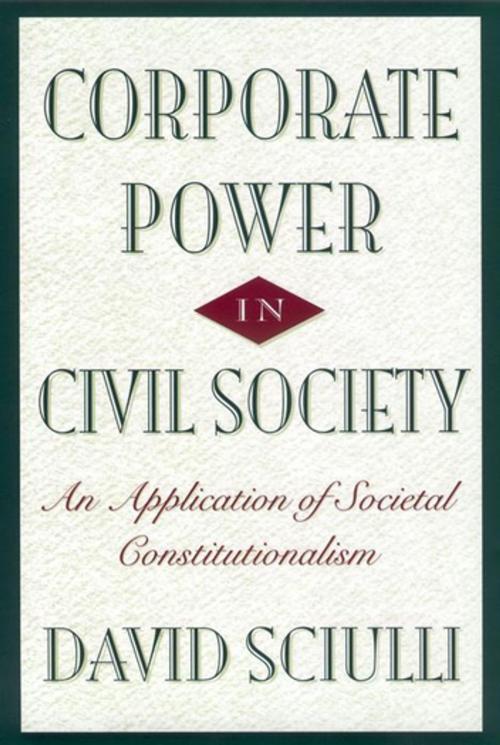| Author: | David Sciulli | ISBN: | 9780814739952 |
| Publisher: | NYU Press | Publication: | January 1, 2001 |
| Imprint: | NYU Press | Language: | English |
| Author: | David Sciulli |
| ISBN: | 9780814739952 |
| Publisher: | NYU Press |
| Publication: | January 1, 2001 |
| Imprint: | NYU Press |
| Language: | English |
The corporate mega-mergers of the 1980s and 1990s raise many troubling questions for social scientists and legal scholars. Do corporate globalism and the new, streamlined corporation help or hinder the development of civil society? Does the new power that increasingly deregulated businesses wield undermine the rights of citizens, or is this threat being exaggerated? Who has the authority to get things done in a corporation's name and who can be held legally responsible for a corporation's misbehavior? What role, if any, should the courts play in strengthening the rights of individuals who challenge the actions of big business?
David Sciulli maps the legal limits of corporate power in our democratic society, and explores the role of the corporate judiciary in creating public policy. He argues that the judiciary must be more vigilant and act to curb corporate abuses. He demonstrates that when corporations exercise their private power in civil society, they are just as capable as the state of exercising it in ways that are dangerous, arbitrary, and challenge the basic institutional arrangements of society. Finally, Sciulli calls for sociologists to involve themselves more deeply in issues of corporate governance and commit their discipline to influencing the decisions of the courts.
The corporate mega-mergers of the 1980s and 1990s raise many troubling questions for social scientists and legal scholars. Do corporate globalism and the new, streamlined corporation help or hinder the development of civil society? Does the new power that increasingly deregulated businesses wield undermine the rights of citizens, or is this threat being exaggerated? Who has the authority to get things done in a corporation's name and who can be held legally responsible for a corporation's misbehavior? What role, if any, should the courts play in strengthening the rights of individuals who challenge the actions of big business?
David Sciulli maps the legal limits of corporate power in our democratic society, and explores the role of the corporate judiciary in creating public policy. He argues that the judiciary must be more vigilant and act to curb corporate abuses. He demonstrates that when corporations exercise their private power in civil society, they are just as capable as the state of exercising it in ways that are dangerous, arbitrary, and challenge the basic institutional arrangements of society. Finally, Sciulli calls for sociologists to involve themselves more deeply in issues of corporate governance and commit their discipline to influencing the decisions of the courts.















